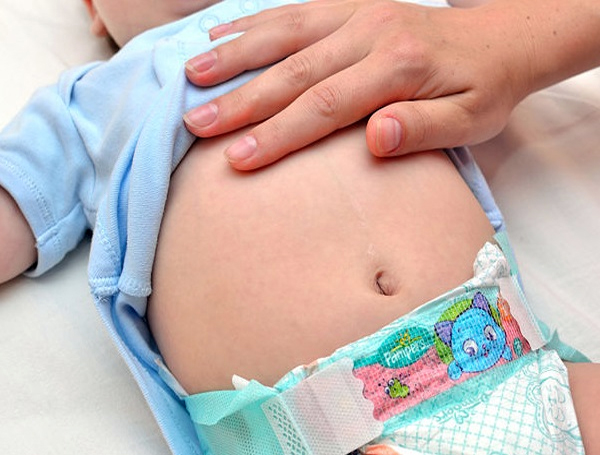
New parents are mostly astonished when they hear loud noises coming out of their little babies. Babies are actually weirdly noisy little creatures who keep surprising you every now and then. Babies can’t really tell you when they need to pass gas. They normally pass gas with a lot of enthusiasm unlike adults. Before we head towards reasons your baby may have gas, you need to know that all babies are gassy because they eat round the clock. This actually means they have bowel movements round the clock giving off gas. However, if your baby seems to have a crying attack, then may be the gas and the shrill cries are connected.
If you are worried about why your baby has such a gassy tummy, here are some reasons for a gassy tummy in babies that you can satisfy yourself with:
- Normal digestion
At times, we might worry too much about our little angels even when all is normal. We all know stomach produces acid which is then neutralized by digestive secretions when the food passes into the intestines. As a result, gas is produced. While some of this gas is absorbed by the blood stream and exhaled out of the lungs, the rest continues its way through the intestines and is passed out. When the intestinal movements are normal, then the gas passed out is also normal.
- Swallowed air
So did you take your child out on a windy day and he swallowed air? Well, that is only a myth but swallowed air happens to be among the most common cause of gas in the stomach and this is exactly what causes belching or burping. We all tend to swallow some air regardless of age. However, infants may swallow large amounts of air.
In case you are bottle feeding your baby, he swallow large amount of air because of an inappropriate feeding nipple which might be too small or too big making the baby drink too fast. On the other hand, breastfed infant may swallow a lot of air in case of fast or plentiful supply of breastmilk or poor latch-on. Other times that your baby can swallow too much air is when swallowing saliva, during episodes of intense crying, while sucking on a pacifier vigorously and while eating or drinking very quickly.
- Incomplete breakdown of milk
Your baby may not be able to completely breakdown milk which can cause the discomfort of excessive gas and even diarrhoea. Why does that occur? That may be because the digestive system of your baby is still immature or he may have malabsorption problems.
Babies may struggle with diarrhoea and excessive gas because they are not able to properly digest carbohydrates, fats or proteins found in milk. It could be formula milk or breast milk. Your baby is not yet able to produce the necessary digestive enzymes in the quantity required to digest certain milk because his digestive tract is still immature.
Babies who are on formula milk may be struck with gastric symptoms because allergy or intolerance to milk protein. This may also rarely occur in breast fed babies. They may become intolerant to proteins found in cow’s milk or other food that finds its way to the baby through mother’s milk.
- Indigestion of solid food
Have your child began eating solid foods or maybe juice? The reason for you baby’s gassy tummy can actually be it. Your baby may start having a gassy tummy because of foods that contain carbohydrates. Carbohydrate malabsorption occurs when the carbohydrates are not fully broken down resulting in release of gas. Some of these foods include peach, pear, apple, corn, potato, wheat, oat, noodles, prune, onion, beans and dairy products. It is only best to give solid foods to babies after four months as they lack adequate amount of digestive enzymes before four months.
Fiber rich diet can also cause gas but all fiber don’t cause gas. Fiber may be soluble and insoluble buy gastric condition solely depends on what your baby eats and in what quantity. Some of the gas causing fiber rich foods are beans, peas and oat bran.It is commonly observed that a diet rich in fiber is more likely to cause a gassy tummy for your baby compared to a diet containing less fiber. Some of the gas causing vegetables include Brussels sprouts, broccoli, eggplant, chickpeas, soy beans, nuts, artichokes, cabbage and carrot. All the foods mentioned are not a nursing mother’s diet but a child’s diet.
- Gastro-intestinal infections and medications
Gastrointestinal infection is a common condition in babies. Apart from gas, it can be accompanied by diarrhea. This infection is known by many other interesting names like a tummy bug, stomach flu and bowel infection. It can be due to fungus, parasites, bacteria or even virus. Make sure you get your baby treated by a doctor.
Medications and over the counter drugs do not come without side effects. Medicines normally prescribed to infants for treating infections, fever, pain, constipation or reflux have side effects that can cause abdominal cramping, gastro-intestinal upsets, diarhhea and excess gas. Talk to your doctor about the side effects if your child is on some medication.






